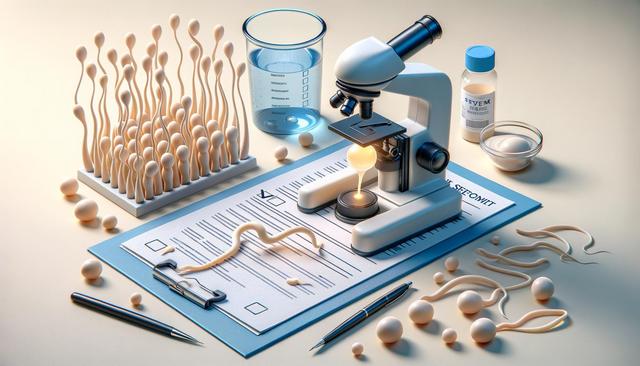What Is a Sperm Donor and Why Are They Needed?
At its core, a sperm donor is someone who provides sperm for the purpose of helping individuals or couples conceive a child. This option is commonly used by single women, same-sex couples, or heterosexual couples facing male infertility. The need for sperm donors has grown as reproductive technology advances and family structures become more diverse. Fertility clinics and sperm banks play a major role in facilitating the process, ensuring that donors meet specific health and legal standards before their samples are used.
Sperm donation helps bridge the gap for individuals who want to experience parenthood but are unable to do so through traditional means. Donors typically undergo a range of screenings, including:
- Medical evaluations for genetic and infectious conditions
- Psychological assessments to ensure emotional readiness
- Legal agreements to outline the donor’s rights and responsibilities
The entire process is designed to protect both the donor and the recipient, while also prioritizing the future child’s well-being. For many recipients, choosing a sperm donor is a deeply personal journey that involves reviewing detailed profiles including physical characteristics, education, and even hobbies.
The Process of Becoming a Sperm Donor
Becoming a sperm donor involves a structured and sometimes lengthy process. It’s not as simple as walking into a clinic and making a donation. Potential donors are first pre-screened through questionnaires and initial interviews. If they meet basic criteria—such as age, lifestyle habits, and family medical history—they move on to more comprehensive evaluations.
Here’s a typical step-by-step outline of the process:
- Initial application and background screening
- Medical and genetic testing
- Psychological evaluation and counseling
- Legal consent and agreement signing
- Sample collection and quarantine period
Collected samples are usually frozen and stored for a minimum of six months. During this time, donors are re-tested to ensure they are free from transmissible diseases. Only after passing all checks are the samples released for use. Many sperm donors commit to regular donations over a period of time, which can range from several months to over a year.
Legal and Ethical Considerations
One of the most critical aspects of sperm donation is understanding the legal framework that governs it. In most cases, sperm donors relinquish all parental rights and responsibilities through legal documentation. This protects both the donor and the recipient from future disputes. However, laws can vary significantly by country and even by state, so it’s essential to consult with legal professionals or the clinic’s legal team.
Ethical considerations are also significant. Some people question the anonymity of sperm donors, while others advocate for the child’s right to know their genetic origins. Depending on local regulations, donors may be anonymous or open-identity, meaning their information can be released to the child after they reach a certain age.
Key legal documents often include:
- Donor consent forms
- Parental rights waivers
- Usage agreements outlining how and where the sperm can be used
Understanding these elements is crucial for anyone considering becoming a sperm donor. It’s not just a physical contribution—it can have long-lasting implications for all parties involved.
Emotional and Psychological Aspects
The emotional side of being a sperm donor is often overlooked but is just as important as the physical and legal aspects. Donors may experience a range of feelings, from pride in helping others to uncertainty about their future connection to potential offspring. Psychological screening and counseling are therefore integral parts of the donor process.
Some common emotional considerations include:
- How it feels to have biological offspring you may never meet
- Potential future contact if choosing open-identity donation
- Explaining the decision to family or future partners
Many clinics offer or require ongoing psychological support for donors to help them navigate these complex emotions. For some, the knowledge that they’ve helped others start or grow a family is deeply fulfilling. For others, the anonymous nature may lead to questions later in life, especially if laws change or if donor-conceived children seek out their biological origins.
Long-Term Implications and Responsibilities
While legal agreements typically absolve sperm donors of parental responsibilities, there are still long-term factors to consider. With the rise of direct-to-consumer DNA testing, anonymity is becoming increasingly difficult to maintain. Donors should be prepared for the possibility that donor-conceived children may find them in the future, even if they originally donated anonymously.
Other long-term considerations include:
- Impact on future relationships or family dynamics
- Medical history updates requested by clinics or recipients
- Personal feelings about knowing that biological children may exist
Being a sperm donor is a commitment that doesn’t end when the donation is made. It’s a decision that can influence not just the donor’s life, but also the lives of recipients and the children conceived. Transparency, counseling, and ongoing communication with the clinic can help donors manage this responsibility with clarity and care.
Conclusion: Making an Informed and Thoughtful Decision
Choosing to become a sperm donor is a meaningful act that can bring immense joy to individuals and families. However, it comes with responsibilities that extend far beyond the initial donation. From legal agreements and psychological evaluations to long-term considerations, it’s important to approach this decision with full awareness.
For those considering becoming a sperm donor, taking the time to understand the full scope of the role is essential. Working with reputable clinics, seeking legal advice, and participating in counseling can help ensure that the process is positive and respectful for everyone involved. Ultimately, informed and thoughtful donors play a crucial role in helping others achieve their dream of parenthood, while also honoring their own values and boundaries.








